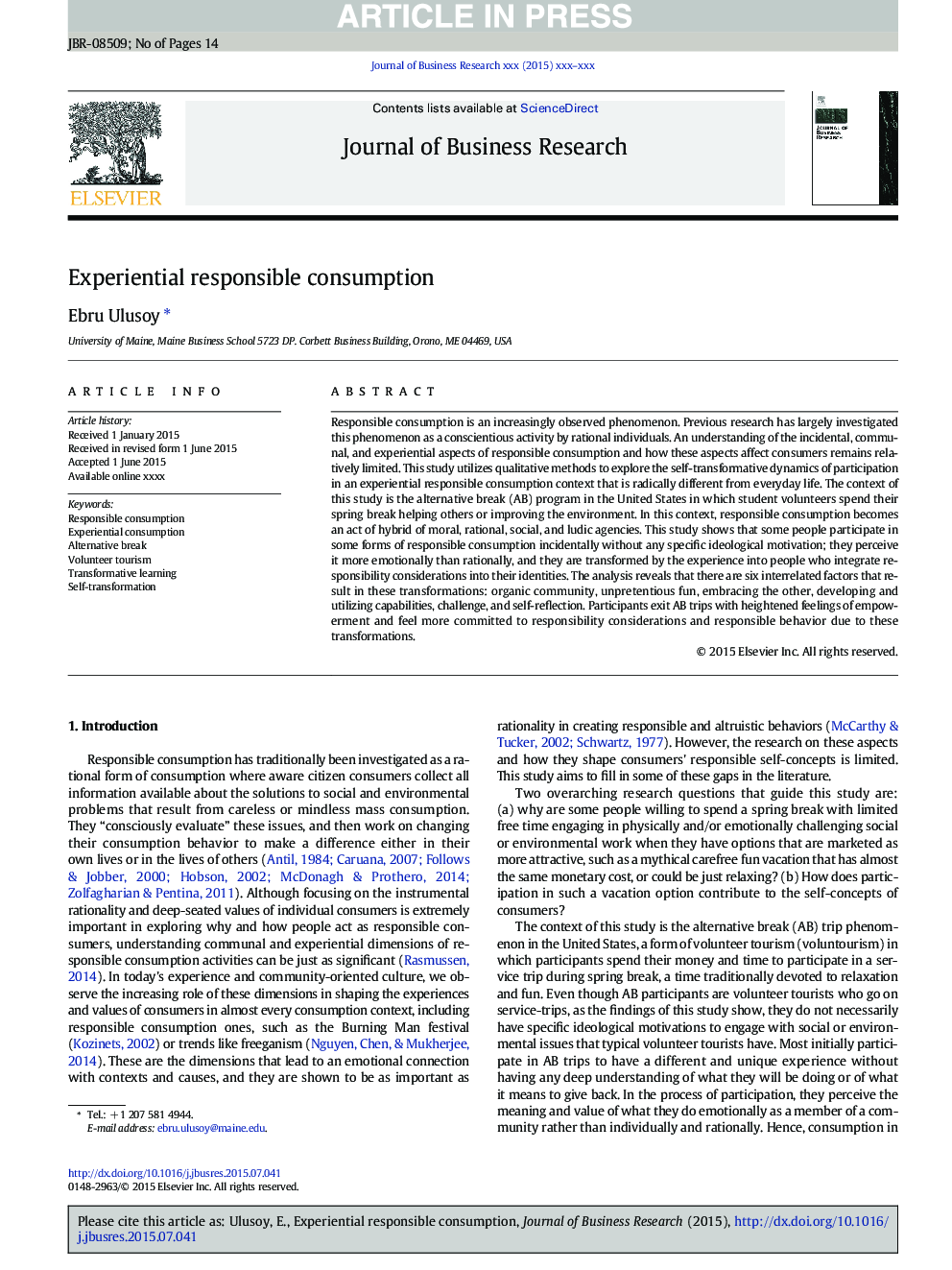| Article ID | Journal | Published Year | Pages | File Type |
|---|---|---|---|---|
| 10492963 | Journal of Business Research | 2016 | 14 Pages |
Abstract
Responsible consumption is an increasingly observed phenomenon. Previous research has largely investigated this phenomenon as a conscientious activity by rational individuals. An understanding of the incidental, communal, and experiential aspects of responsible consumption and how these aspects affect consumers remains relatively limited. This study utilizes qualitative methods to explore the self-transformative dynamics of participation in an experiential responsible consumption context that is radically different from everyday life. The context of this study is the alternative break (AB) program in the United States in which student volunteers spend their spring break helping others or improving the environment. In this context, responsible consumption becomes an act of hybrid of moral, rational, social, and ludic agencies. This study shows that some people participate in some forms of responsible consumption incidentally without any specific ideological motivation; they perceive it more emotionally than rationally, and they are transformed by the experience into people who integrate responsibility considerations into their identities. The analysis reveals that there are six interrelated factors that result in these transformations: organic community, unpretentious fun, embracing the other, developing and utilizing capabilities, challenge, and self-reflection. Participants exit AB trips with heightened feelings of empowerment and feel more committed to responsibility considerations and responsible behavior due to these transformations.
Keywords
Related Topics
Social Sciences and Humanities
Business, Management and Accounting
Business and International Management
Authors
Ebru Ulusoy,
